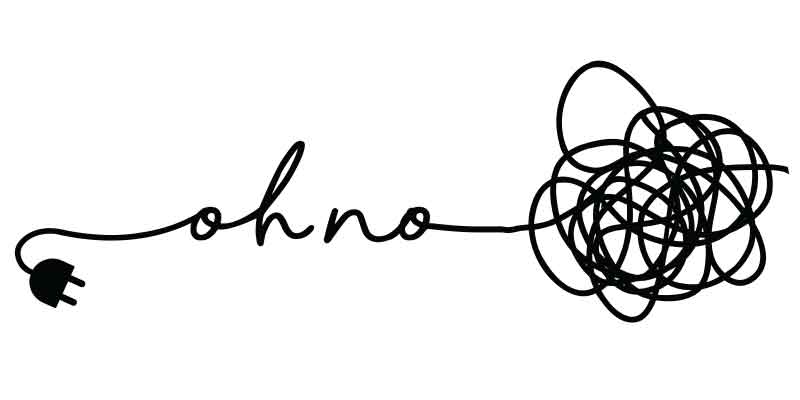Everyone makes mistakes. After all, we’re only human. But what if the blunder could have been avoided? In other words, the error wasn’t due to an uncontrollable event or competitive pressure — it was totally within your control. Do you make unforced errors?
There’s a difference between making a mistake and being the cause of the mistake.
What can you do to minimize those events, you ask. The first step is to determine where you may be vulnerable so you can work hard to eliminate those instances.
30 Sources of Unforced Errors
- Rushing around. There’s a big difference between acting quickly and rushing around aimlessly. The former is deliberate, the latter haphazard.
- Lack of proper thought. Winging it or making off-the-cuff decisions is not a substitute for careful consideration.
- Operating in the dark. The only difference between being uninformed and being misinformed is that one is your choice and the other is theirs.
- Putting off problems. Problems don’t get better with age. In fact, small problems are likely to snowball out of control down the road.
- Having a poor attitude. One of the biggest obstacles to success lies within you. If you believe you can’t, you won’t.
- Failing to make hard choices. If you treat everything as a priority, then nothing is a priority. As a result, important things don’t get the attention they deserve.
- Acting greedy. If you approach situations with a selfish motive, don’t be surprised if the behavior is reciprocated.
- Failing to take precautions. Don’t wait for a fire to locate the exits. Get good insurance, choose strong passwords, back up your computer, and go for your annual physical.
- Taking the easy route. Do you do what’s easy or what’s right?
- Being careless. Being diligent shows that you care; sloppiness shows that you don’t.
- Trying too hard to win acceptance. Compromising your principles, even one time, is a terrible mistake.
- Being ill-prepared. Be prepared or prepare to be blindsided.
- Missing an opportunity. Some opportunities appear once in a lifetime. Be open to them or they’ll pass you by.
- Lack of proper judgment. One of the easiest ways to destroy your reputation is to exhibit reckless personal behavior.
- Getting poor input. If you base your decision on inaccurate, incomplete, or out-of-date information, your judgment will be flawed.
- Having a biased viewpoint. While a dirty windshield hampers your ability to see the road effectively, mental filters can distort your view of the world.
- Being overconfident. Don’t look over your shoulder to see who’s coming; the real opposition lies with yourself. Complacency is the enemy of success.
- Not thinking before you “speak.” Think before you post something on social media. It’s better to bite your tongue than to eat your words.
- Repeating mistakes. Making a mistake is acceptable. Just don’t let it return for an encore.
- Getting distracted. If you don’t get something done, it’s not that you didn’t have time; you just chose to spend it doing something else.
- Treating people poorly. It’s easier to treat people properly than to repair broken relationships.
- Failing to think for yourself. If you follow the crowd blindly, they may lead you off a cliff.
- Wasting time. Those who waste the most time are usually the first to complain of having too little of it.
- Failing to follow basic etiquette. Next time you’re deciding whether to wait your turn, respond in a timely fashion, or keep someone waiting…mind your manners!
- Keeping bad company. A lot has been said about the impact that toxic waste has on the environment. Consider the impact that toxic people have on your life.
- Reacting emotionally. If you’re angry or upset, count to 10 before communicating your feelings. If that doesn’t work, try 20.
- Seeking immediate gratification. Your short-term desires often work contrary to your long-term interests. In many cases, you’re simply trading away your future potential for happiness today.
- Refusing to make sacrifices. All great achievements require sacrifice. If you’re not willing to make the commitment, don’t complain about the outcome.
- Taking things for granted. When you take things for granted, you jeopardize their very existence.
- Compromising your integrity. Follow your conscience. If you sell your soul, you’ll pay the price.
Do You Make Unforced Errors?
Please leave a comment and tell us what you think or share it with someone who can benefit from the information.
Additional Reading:
Do You Take It for Granted?
Never Lower Your Personal Standards. Never!
15 Signs That You Need an Attitude Adjustment
Mediocre Behavior Is a Choice
Do You Talk Yourself into Failing?
Complacency: The Enemy of Success
If you like this article, subscribe to our blog so that you don’t miss a single post. Get future posts by RSS feed, email or Facebook. It’s FREE.






Leave a Comment